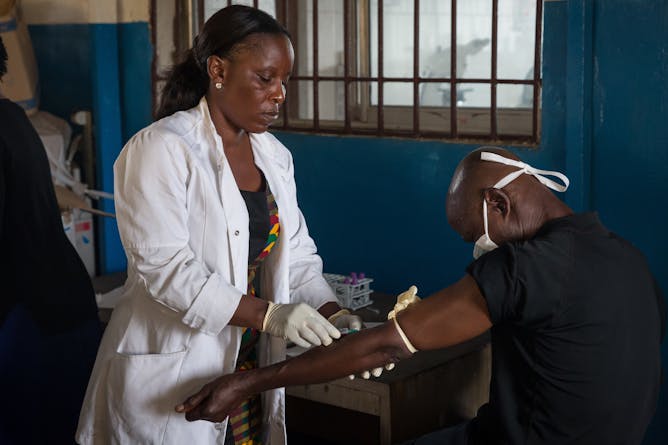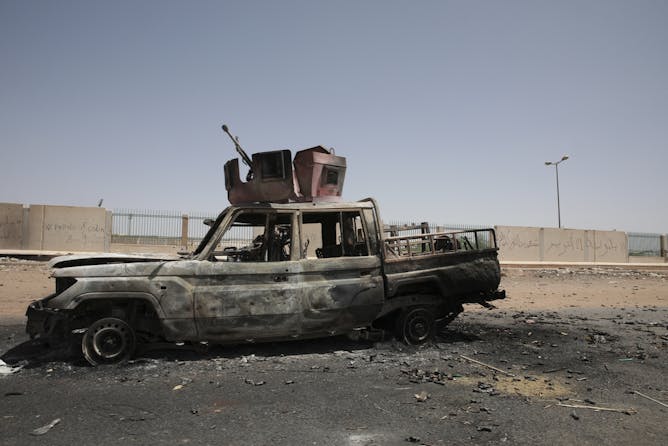|
Yes, yes, the U.S. election is only (counts fingers) four days away, and for many of us the angst and anxiety has well and truly set in. But after months of watching stump speeches, debates and star-studded fundraisers, there is little now to do other than sit back, wait and fondle a sheep’s liver for clues as to whether Donald Trump or Kamala Harris will be elected by the great American public.
You see, The Conversation doesn’t do speculation … but 4,000 years ago, ancient Mesopotamians did. And the University of Leicester’s Selena Wisnom has tried out their approach. “Looking at livers also makes a serious underlying point about how humans have coped with uncertainty throughout history, and still struggle to today,” she adds.
Those looking for less – ahem – woolly answers as to who will be handed the White House keys can, of course, look for predictors such as the weather or local football results, both of which, according to random events expert Mark Robert Rank, can have an “influence on who wins and loses in a close election.”
Of course, if you want more conventional analysis, you can listen to U.S. politics editor Naomi Schalit lay it out like it is in the latest The Conversation Weekly podcast.
Elsewhere this week we have been looking at the implications of Israel’s banning of UNRWA and the toll of civil war in Sudan.
|

Carmen K. Sisson/Cloudybright/Alamy
David Hastings Dunn, University of Birmingham
The result of the US election will have ramifications worldwide.
|

A nurse takes blood from a patient for testing at a hospital in Monrovia, Liberia.
Getty Images
Tom Nyirenda, Stellenbosch University
The World Health Organization’s latest global report on tuberculosis has good and bad news for African countries.
|

Alina Gozin'a
Diane Charleson, Australian Catholic University
The film highlights Maria Anna Mozart’s legacy, as well as the struggles women musicians faced in the 18th century (and continue to today).
|

A destroyed military vehicle is seen in Sudan near the beginning of the current fighting in April 2023.
AP Photo/Marwan Ali
Sarah Elizabeth Scales, University of Nebraska Medical Center; Blake Erhardt-Ohren, University of California, Berkeley; Debarati Guha Sapir, Université catholique de Louvain (UCLouvain); Khidir Dalouk, Oregon Health & Science University; Rohini J Haar, University of California, Berkeley
The work of estimating conflict mortality is difficult. But that doesn’t make this grim exercise, nor accounting for the broader effects of conflict, any less critical.
|
|
|
-
Nicholas R. Micinski, University of Maine; Kelsey Norman, Rice University
Millions of Palestinian refugees are set to suffer as a result of banning the UN agency, piling pressure on the US, which has warned of ‘consequences.’
-
Kelsey Coffman, University of Tennessee
Fruit flies wreak havoc on crops in Hawaii, but a type of parasitoid wasp armed with a biological weapon has helped keep the pests at bay.
-
Viktoriia Lapa, Bocconi University
The European Union needs a plan to support Ukraine to victory – and the beginnings of a plan to re-engage Russia after the war.
-
Jialu Shan, International Institute for Management Development (IMD)
Pragmatism fuels the country’s innovative strategy.
-
Selena Wisnom, University of Leicester
Using a sheep’s liver to predict the outcome of the US election makes a serious point about how humans have coped with uncertainty throughout history.
-
Gemma Ware, The Conversation; Naomi Schalit, The Conversation
Political scientist Jesse Rhodes speaks to The Conversation Weekly podcast about the latest results of the UMass Amherst poll on Americans’ attitudes about Kamala Harris and Donald Trump.
|
|